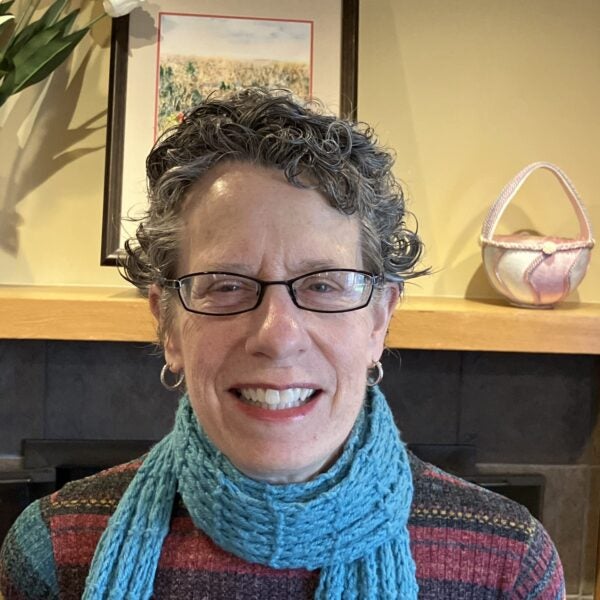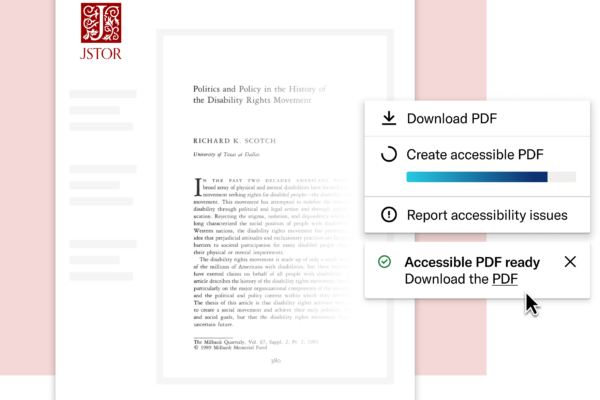In the landscape of digital archives and library services, the ability to amplify marginalized voices through crowdfunding and crowdsourcing has gained significant momentum.
A recent presentation by Jasmine Wilson, Program Administrator of Reveal Digital’s “Behind the Scenes of the Civil Rights Movement” program, Michael Levine-Clark, Dean of University of Denver Libraries and Rhonda Gonzales Manzanares, Dean of Libraries at Colorado State University, Pueblo, demonstrates the impact these approaches have on accelerating the inclusion of underrepresented histories in mainstream academic resources.
A spotlight on marginalized voices
The mission of ITHAKA’s Reveal Digital is to discover and share the lesser-known stories and voices of marginalized groups and social movements of the 20th and 21st centuries. Among the seven collections currently curated, several stand out for their impact:
- Independent Voices: This collection, started in 2013, focuses on alternative press newspapers and journals from the 1960s to the 1980s. It includes significant contributions, like the La Cucaracha newspapers from CSU Pueblo.
- Student Activism: Capturing the voices of student protests and advocacy across the United States from the 20th and early 21st centuries, this collection highlights the crucial role students have played in shaping social and political discourse.
- American Prison Newspapers: A unique collection bringing together hundreds of newspapers published within U.S. prisons by incarcerated individuals over the past 200 years.
- Behind the Scenes of the Civil Rights Movements: Overseen by Jasmine Wilson, this aims to bring together up to 1 million pages of primary source material. It focuses on the lesser-known activists and organizations from African American, Latina, Asian American, Pacific Islander, and Indigenous communities.
The role of libraries
The keystone of Reveal Digital’s approach is its collaborative relationship with libraries. Libraries are contributors of content and crucial partners in funding through a crowdfunding model. Reveal DIgital uses these resources to digitize and preserve archival materials around curriculum-relevant historical themes, and makes these collections accessible to the public on JSTOR without a paywall.
Empowering small libraries: The case of CSU Pueblo

Rhonda Gonzalez Manzanares, Dean of Library Services at Colorado State University Pueblo (CSU Pueblo), shared a compelling case study on how Reveal Digital’s model has significantly benefited smaller institutions like hers.
For libraries with limited resources, participating in large-scale digitization projects can seem daunting, if not impossible. Through Reveal Digital’s crowdsourcing approach, CSU Pueblo was able to share its La Cucaracha newspaper collection, an essential publication of the Chicano Movement, for inclusion in Reveal Digital’s Independent Voices collection. This made the newspaper accessible to researchers, students, and the public far beyond the university’s physical reach. at no cost to the library.
Building trust with the community
Before partnering with Reveal Digital, CSU Pueblo faced a significant challenge earning the trust of its local community, particularly those involved in the Chicano Movement. The Chicano Movement was a pivotal social justice movement in Colorado’s history.
The materials in CSU Pueblo’s Colorado Chicano Movement Archives are not just historical artifacts; they are deeply personal and politically charged items, often representing decades of activism and struggle. Community members were eager to see their contributions digitized and made available quickly. Reveal Digital’s support enabled CSU Pueblo to meet these expectations, strengthening the library’s relationship with the local community.
Expanding access and visibility
In addition to being available to users of JSTOR, each digitized item includes metadata that points back from JSTOR to CSU Pueblo’s archives, driving increased traffic and visibility to the library’s other collections.
This kind of exposure is invaluable for a smaller institution, helping position CSU Pueblo as a key resource in the study of Chicano history and social movements. In addition, CSU Pueblo received copies of the digital files and metadata, which preserved the materials and enhanced the library’s own digital offerings without investment in extensive in-house resources.
A win-win partnership
In summary, the partnership with Reveal Digital has provided CSU Pueblo with many benefits:
- Increased accessibility: By digitizing and sharing unique local collections, CSU Pueblo has made these materials accessible to a global audience, increasing their impact and visibility.
- Resource optimization: The collaboration allowed the library to leverage Reveal Digital’s resources for digitization and metadata creation, tasks that would have been challenging with the library’s limited budget and staffing.
- Strengthened community ties: The project helped build trust and strengthen relationships with local community members, ensuring their histories are preserved and honored.
- Enhanced institutional reputation: By contributing to a nationally recognized platform like Reveal Digital, CSU Pueblo has elevated its profile as a key player in the preservation of Chicano Movement history.
Rhonda’s experience highlights how even small libraries can have a significant impact on the preservation and dissemination of marginalized voices through strategic partnerships like with Reveal Digital.
A call to action
Michael Levine-Clark, Dean of Libraries at the University of Denver and a member of Reveal Digital’s Executive Committee, emphasized the importance of libraries’ financial participation in these initiatives. He pointed out that while many libraries invest heavily in commercial digital collections, the opportunity to support open access projects like Reveal Digital offers a broader impact.
By contributing to Reveal Digital, libraries can help ensure that underrepresented voices are heard, providing invaluable resources for scholars and the public alike.
In summary, Reveal Digital’s innovative use of crowdfunding and crowdsourcing advances the goals of the cultural heritage community to preserve and make accessible marginalized voices to create a richer, more inclusive historical record that benefits everyone. As more institutions join in, the potential to uncover and share these important stories continues to grow, ensuring that the voices of the past are not lost to the sands of time.



